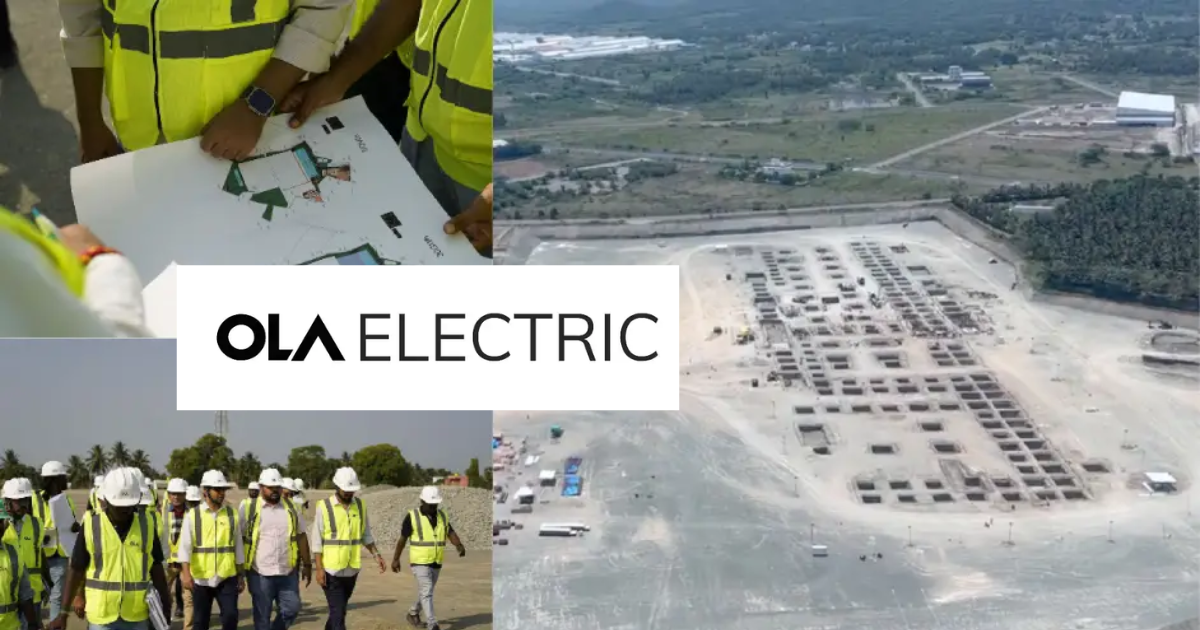Electric mobility startup Ola Electric has announced the commencement of construction for India’s largest gigafactory in Krishnagiri, Tamil Nadu. The gigafactory, spread across 115 acres of land, is set to become operational by early next year with an initial capacity of 5 gigawatt-hours (GWh). However, the company plans to expand its capacity in phases, eventually reaching a full capacity of 100 GWh. The construction of the gigafactory marks a significant milestone in India’s electrification journey, as Ola Electric aims to establish the country as a global hub for electric vehicles (EVs).
Ola Electric, led by founder and CEO Bhavish Aggarwal, has been actively investing in various capabilities to position itself as a key player in India’s emerging EV ecosystem. Last year, the company unveiled its indigenous lithium-ion (Li-ion) cell, NMC 2170, and announced plans to begin mass production in 2023 at the upcoming gigafactory. Ola Electric has also invested $500 million in setting up a Battery Innovation Center (BIC) in Bengaluru, focusing on battery cell research and development.
In addition to manufacturing vehicles, Ola Electric aims to produce electric four-wheelers, electric sports motorcycles, and other products. Earlier this year, the company signed a memorandum of understanding (MoU) with the Tamil Nadu government, committing to an investment of over INR 7,600 crore to establish an EV hub in the state. This facility will encompass advanced cell and EV manufacturing facilities, vendor and supplier parks, and a comprehensive ancillary ecosystem for EVs, all located in a single location.
Although Ola Electric is currently the leading electric two-wheeler player in India, recent challenges have affected the overall EV market. The FAME-II probe conducted by the central government against several EV makers, including Ola Electric, for misappropriation of subsidies, has led to a reduction in subsidy amounts and a decrease in registrations. Ola Electric’s total vehicle registrations in June stood at 9,577 units, a decline from previous months.
Despite these setbacks, India’s EV space continues to thrive and attract global players. Tesla, after canceling its plans due to disagreements over taxation and incentives, recently expressed renewed interest in entering the Indian market. Tesla CEO Elon Musk, during a meeting with Prime Minister Narendra Modi, confirmed the company’s intention to establish a presence in India as soon as possible. With ongoing advancements and growing interest, the future of electric mobility in India appears promising.



![[CITYPNG.COM]White Google Play PlayStore Logo – 1500×1500](https://startupnews.fyi/wp-content/uploads/2025/08/CITYPNG.COMWhite-Google-Play-PlayStore-Logo-1500x1500-1-630x630.png)